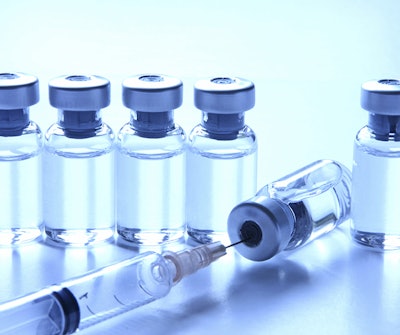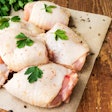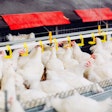
A grant from the U.S. Poultry and Egg Association (USPOULTRY) will fund research evaluating vaccination strategies to reduce outbreak-associated Salmonella infections in turkeys.
“The objective of this research project is to support the development and/or advancement of applicable tools for targeted mitigations to control the human foodborne pathogen Salmonella for the turkey industry,” said Principal Investigator Dr. Shawn Bearson, a microbiologist for the United States Department of Agriculture (USDA), Agricultural Research Services (ARS), National Animal Disease Center, Food Safety and Enteric Pathogens Research Unit in Ames, Iowa.
“With over 2,600 Salmonella serotypes, immune protection against one serotype of Salmonella may not provide protection against other Salmonella serotypes. Salmonella evades cross-protection by expressing serotype-specific antigens on the bacterial outer surface that are immunodominant, thereby inducing a host immune response that is specific to that particular Salmonella serotype.”
The project will specifically focus on vaccination methods to control S. Reading, a serotype that has only recently become associated with human foodborne illness from turkey products.
The project
Bearson plans to evaluate two vaccines during the project. The first is targeted to prevent the colonization of S. Typhimurium, while the second is a vaccine created by Bearson’s research group that is designed to cross-project against various Salmonella serotypes.
“To improve Salmonella vaccinology for food producing animals, our research team created a live, attenuated vaccine with genetic mutations in the bacterial genome to limit Salmonella serotype-specific immunity,” she explained. In previous tests, the vaccine has been effective against S. Heidelberg in turkeys and S. Typhimurium and S. Choleraesuis in pigs.
The researchers plan to challenge vaccinated and mock-vaccinated turkey poults that are approximately one month of age with an S. Reading isolate from the 2017-2019 turkeyutbreak.
“The ultimate goal of our solutions-oriented research program is to identify intervention strategies that limit Salmonella transmission from food animal products to consumers, benefiting food animal producers and public health,” Bearson said.
Like what you just read? Sign up now for free to receive the Poultry Future Newsletter

















